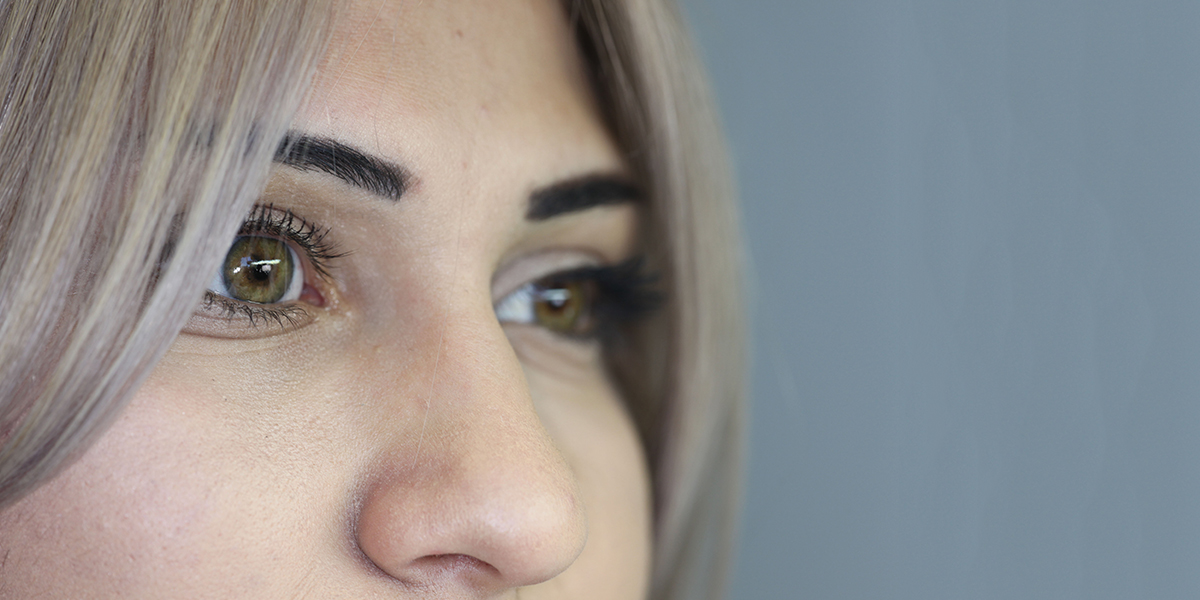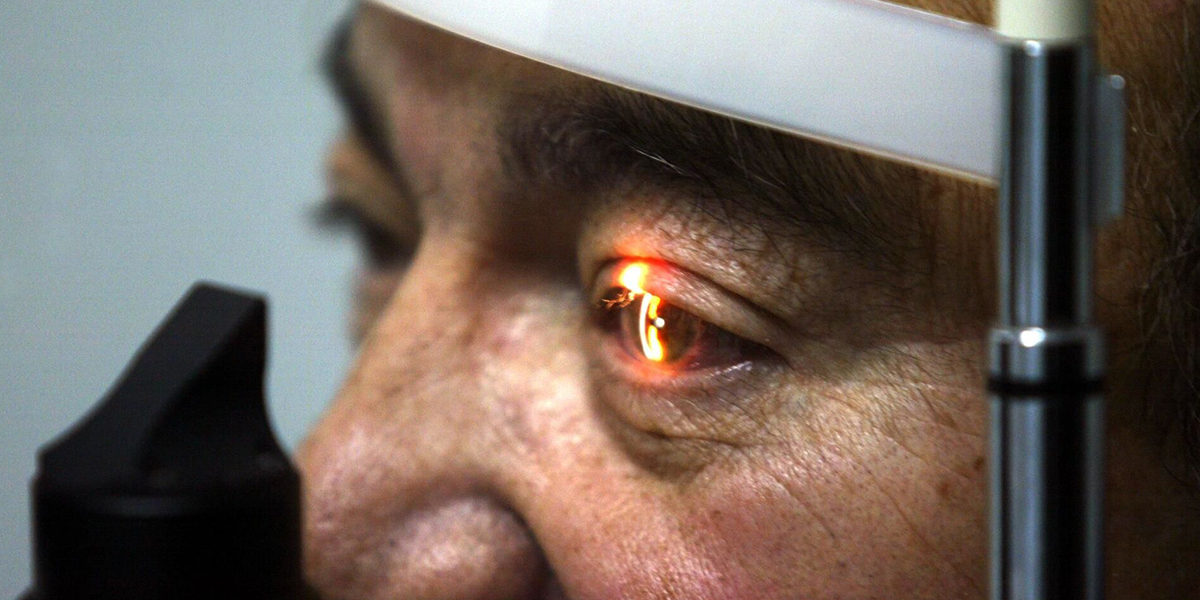
What is Ocular Prosthesis ?
An ocular prosthesis, commonly known as a glass eye or artificial eye, is a custom-made prosthesis that is used to replace a missing or damaged eye. It is primarily a cosmetic device designed to restore a natural appearance to the face when an eye has been surgically removed due to injury, disease, or other reasons. Ocular prostheses are not functional in the sense of restoring vision, but they serve an important role in enhancing the aesthetic appearance of an individual.
Here are some key points about ocular prostheses:
- Custom Design: Ocular prostheses are individually crafted to match the color, size, and shape of the natural eye. Skilled ocularists work closely with patients to ensure a close resemblance to the unaffected eye.
- Materials: Traditionally, ocular prostheses were made of glass. However, modern prostheses are often made of acrylic materials, which are lighter and more durable. The prosthesis is carefully painted to mimic the details of the natural eye.
- Placement: The ocular prosthesis is typically placed over the implant or within the eye socket during a surgical procedure called enucleation or evisceration. The implant provides support and helps anchor the prosthesis in place.
- Maintenance: Ocular prostheses require regular cleaning and maintenance to ensure hygiene and longevity. Patients are usually advised to remove and clean the prosthesis daily.
- Comfort and Movement: A well-fitted ocular prosthesis should be comfortable and allow for natural movement. It is designed to move in coordination with the remaining natural eye.
- Emotional and Psychological Impact: Losing an eye can have a significant emotional and psychological impact on an individual. Ocular prostheses play a crucial role in helping patients regain a sense of normalcy and confidence in their appearance.
- Follow-up Care: Individuals with ocular prostheses may need periodic follow-up appointments with an ocularist or eye care professional to ensure proper fit and make any necessary adjustments.
It’s important to note that while ocular prostheses provide cosmetic benefits, they do not restore vision. People with ocular prostheses typically adapt well to their use and can lead normal, fulfilling lives. If you or someone you know is considering an ocular prosthesis, it’s recommended to consult with an ocularist or ophthalmologist to discuss the options and the overall process.
How is Ocular Prosthesis Surgery Performed?
Ocular Prosthesis surgery is typically performed when an individual has lost an eye due to injury, disease, or other medical reasons. The surgery involves the removal of the damaged or non-functioning eye and the placement of an implant, which provides support for the artificial eye or ocular prosthesis. The primary goals of the surgery are to create a natural-looking appearance and to improve the overall comfort and movement of the prosthesis. Here is an overview of the typical steps involved in eye prosthesis surgery:
Ocular Prosthesis Consultation and Evaluation:
Before the surgery, the patient undergoes a thorough examination and consultation with an ophthalmologist or ocularist.
The ophthalmologist assesses the condition of the eye, discusses the reasons for eye removal, and determines the appropriate course of action.
Ocular Prosthesis Preparation for Surgery:
If the eye is being removed due to disease or injury, the affected eye is usually carefully measured and photographed to assist in the creation of a custom-fitted prosthesis.
Anesthesia:
The surgery is typically performed under general anesthesia to ensure the patient’s comfort and to minimize any potential discomfort.
Removal of the Eye (Enucleation or Evisceration):
Enucleation involves the removal of the entire eye, leaving the eye muscles and other structures intact.
Evisceration involves removing the contents of the eye while preserving the outer shell (sclera) and eye muscles.
The choice between enucleation and evisceration depends on the individual case and the reasons for eye removal.
Placement of the Implant:
After the eye is removed, an orbital implant is typically inserted into the eye socket. This implant provides a stable base for the prosthesis and helps maintain the natural contour of the eye socket.
The implant may be made of materials such as porous polyethylene or hydroxyapatite, which allow for tissue integration.
Closure of the Eye Socket:
The incisions made during the surgery are carefully closed to promote healing. Sutures or other closure methods may be used.
Postoperative Care:
Following the surgery, patients are given instructions on postoperative care, including the use of medications and eye care.
There is a healing period during which the eye socket recovers, and any swelling or discomfort gradually subsides.
Fitting and Placement of the Ocular Prosthesis:
Once the eye socket has healed, an ocularist works with the patient to create a custom-fitted ocular prosthesis.
The prosthesis is placed over the implant and secured in the eye socket, providing a natural appearance.
Follow-up Appointments:
Patients typically have follow-up appointments with the surgical team and the ocularist to ensure proper healing, fit, and comfort of the prosthesis.
It’s important to note that the specific details of the surgery may vary based on the individual’s condition and the preferences of the surgical team. Patients should consult with their healthcare providers to fully understand the procedure and what to expect during the recovery process.

Ocular Prosthesis-Surgery-Turkey-Prices
Is Ocular Prosthesis Surgery performed in Turkey?
Yes, eye prosthesis surgery is performed in Turkey. Turkey has a well-established healthcare system with modern medical facilities and skilled healthcare professionals. Ophthalmic surgeries, including eye prosthesis procedures, are offered in various hospitals and specialized eye clinics throughout the country.
If you are considering eye prosthesis surgery in Turkey, it’s important to research and choose a reputable medical facility and an experienced ophthalmologist or ocularist. You may want to consider factors such as the facility’s reputation, the qualifications of the medical professionals, and patient reviews.
Before undergoing any medical procedure, it’s advisable to schedule a consultation with the healthcare provider who will be performing the surgery. During the consultation, you can discuss your specific case, ask questions about the procedure, and understand the details of the surgery, including the expected outcomes and the recovery process.
If you are not already in Turkey and are considering traveling for the surgery, be sure to consider travel logistics, accommodation, and postoperative care. Additionally, it’s crucial to communicate with the medical professionals involved to ensure a smooth process and to address any concerns you may have.
Always prioritize your health and safety, and make informed decisions based on thorough research and consultations with qualified healthcare professionals.
Ocular Prosthesis Surgery Turkey Prices
To obtain accurate and current information on the cost of eye prosthesis surgery in Turkey, I recommend reaching out directly to reputable eye clinics or hospitals in the region. Contacting them will allow you to inquire about their services, the details of the procedure, and the associated costs.
When considering medical procedures abroad, it’s essential to not only consider the cost but also the quality of healthcare services and the reputation of the medical facility. Ensure that you choose a clinic or hospital with experienced and qualified healthcare professionals who specialize in ophthalmic surgeries.
Additionally, be aware that medical prices are subject to change, and the costs associated with eye prosthesis surgery may vary from one provider to another. It’s advisable to have a clear understanding of what the quoted price includes, such as preoperative assessments, the surgery itself, postoperative care, and any potential follow-up appointments.
Always consult directly with the healthcare providers for the most accurate and current information regarding prices, and consider seeking multiple opinions or quotes to make an informed decision.
Detailed Information, You Can contact Us Via phone, Whatsapp or e-mail.

 English
English Français
Français Deutsch
Deutsch العربية
العربية